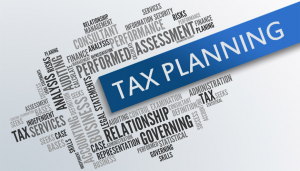
Now is the time for taxpayers to consider their current tax positions to see if there are steps they can take to minimise their tax liability prior to 30 June.
We have outlined below some of the main tax planning ideas that you can consider.
$30,000 instant asset write-off for businesses
The instant asset write-off threshold for businesses has increased to $30,000. There are different eligibility criteria and write-off thresholds throughout the 2019 financial year. We have summarised these criteria here. If you want to take advantage of the instant asset write-off, you will need to make sure you acquire the asset prior to 30 June.
Employee superannuation
The June quarter superannuation guarantee liability is required to be paid by 28 July. However, a business can only claim a tax deduction for employees superannuation when it is actually paid. As such, to ensure you get the deduction in the current year, we recommend that you pay your employees’ June superannuation guarantee liability prior to 30 June (cashflow permitting). We recommend that the payment be made by 20 June (to ensure it is processed by the recipient superfund). If you use the ATO’s superannuation clearing house, they have recommended paying no later than 24 June.
Personal superannuation
You may also want to make personal contributions to super. For the 2018/19 financial year, the maximum concessional (deducted) contribution is $25,000.
Please call us if you are considering making personal contributions superannuation to check whether:
(a) you can claim a tax deduction for making personal contributions
(b) how much you may be able to claim as a deduction
(c) whether it is tax effective for you to make the personal contribution
(d) what process needs to be followed in order to make the contribution
You also need to consider whether making a contribution fits within your overall financial plan as advised by your financial advisor.
Trade debtors
You should review your trade debtors as at 30 June. You must ensure that any debts that are uncollectable are written off prior to 30 June in order to claim a tax deduction for the write-off in the current financial year.
Prepay or bring forward your expenses
Make sure you review all of your expenses and bring forward any expenses to June (where possible). For example, stock up on stationery and office consumables, prepay your insurance and interest (if applicable) and look at any other expenses you may be able to pay in June. By bringing these expenses forward to June, you are obtaining a tax deduction in the current financial year which will reduce your overall tax bill for the 2019 year.
Defer assessable income
Consider whether it is possible to defer the derivation of your assessable income (being mindful of cashflow implications).
Motor vehicles
If you are using a vehicle for a high percentage of work-related travel, make sure you keep a logbook. Without a logbook, an individual is limited to claiming a maximum of 5,000km at $0.66 (or $3,300). If you keep a logbook, you can claim the business percentage of the operating costs of the vehicle (petrol, registration, servicing, depreciation, interest etc).
Rental properties
If you have a rental property, we wrote a blog post for Affinity Electrical outlining some of the main end of year considerations for rental properties. You can access the blog post here.
If you would like to discuss end of year tax planning for your personal situation, please call us on (07) 56656469.
DISCLAIMER: The information in this article is general in nature and is not a substitute for professional advice. Accordingly, neither TJN Accountants nor any member or employee of TJN Accountants accepts any responsibility for any loss, however caused, as a result of reliance on this general information. We recommend that our formal advice be sought before acting in any of the areas. The article is issued as a helpful guide to clients and for their private information. Therefore it should be regarded as confidential and not be made available to any person without our consent,

Jeanette has over 20 years experience as an accountant in public practice. She is a Chartered Accountant, registered tax agent and accredited SMSF Association advisor. When she is not helping business owners grow their empires, you will likely find her out running on the trails or at the gym. Book in to see Jeanette today.




